OUR BUSINESS
Paving the way towards sustainable energy
- TOP
- OUR BUSINESS
- PAVING THE WAY TOWARDS SUSTAINABLE ENERGY
Paving the way towards renewable energy
GPSS works jointly with local communities to develop businesses that develop, design, construct, operate, and maintain sustainable power plants that produce sustainable energy.
FOR SUSTAINABLE SOCIETY

- The sun, wind, water, and various other forms of resources that exist on Earth

- How can we turn these natural resources into energy without damaging the environment?

- First, start by planning and collaborating with local communities
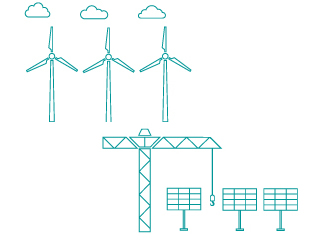
- Working hand in hand to develop sustainable energy power plants

- Helping each and every local community become more sustainable through our business
5 SOURCES OF ENERGY
Supplying sustainable energy to match ever-changing demand requires combining energy sources based on each resource’s distinctive characteristic. For example, wind and solar generation are subject to the vagaries of nature and thus affect the supply of electricity. At GPSS we specialize in developing a broad mix from five technologies to realize the goal of delivering a sustainable lifestyle with safe and reliable energy for all.
Solar
Solar power relies on sunshine, and thus is considered a variable power source with a low capacity factor of approximately 13%. GPSS aims to improve generation efficiency and power output by incorporating the best practices of engineering and construction techniques from around the globe, minimizing the cost of electricity produced.

Wind
Wind generation in Japan has been perceived as difficult due to the lack of a consistent prevailing wind. The lowering of costs and gaining the trust of local stakeholders remain important issues. We aim to use our experience in running community joint ventures and combine this with the buying power and engineering expertise of the European majors to develop wind farms. This is also complemented by our strengths in financing and developing projects.

Hydro
Hydroelectric generation has a long history; however, smaller scale reserves have traditionally been difficult to commercialize, and thus many resources have been left untapped. By carrying out EPC internally, GPSS can lower initial capital costs, thereby allowing us to develop previously commercially non-viable projects.

Geothermal
Geothermal energy operates as a base-load power source, running 24/7, maintaining at a very high-capacity factor, similar to nuclear power. It requires the securing of high-temperature geothermal resources. Geoscience and development teams work closely together to improve resource development efficiency. We are developing projects nationwide through forging long-term partnerships with local communities to create such generation businesses.

Biogas + WTP
Methane gas is used to generate electricity from organic materials such as livestock manure and food residues, which can be used as energy resources. The system converts waste that used to be disposed of as rubbish into a form that can be utilized, creating a long-term resource cycle in partnership with the local community.

TRACK RECORD
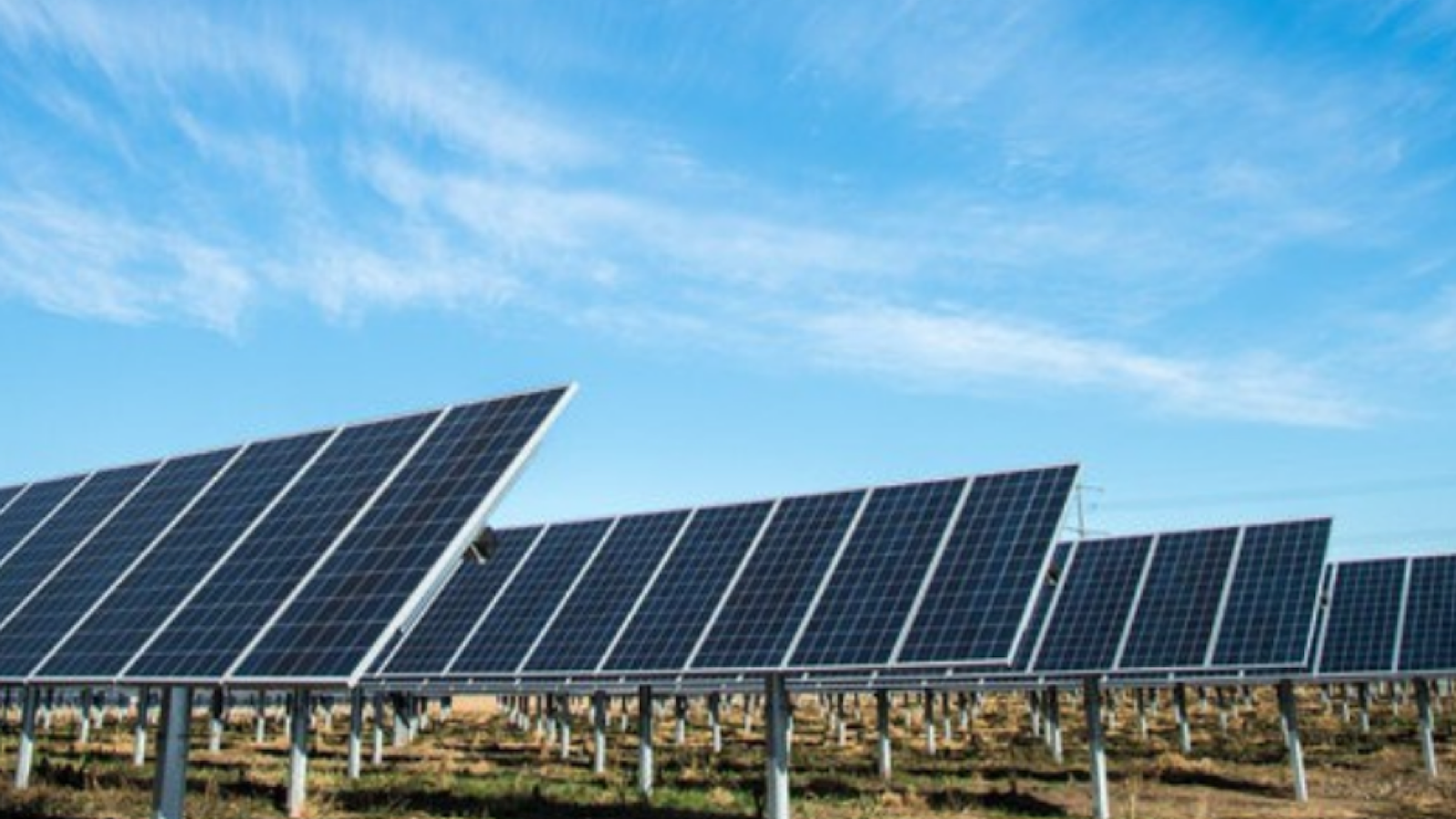
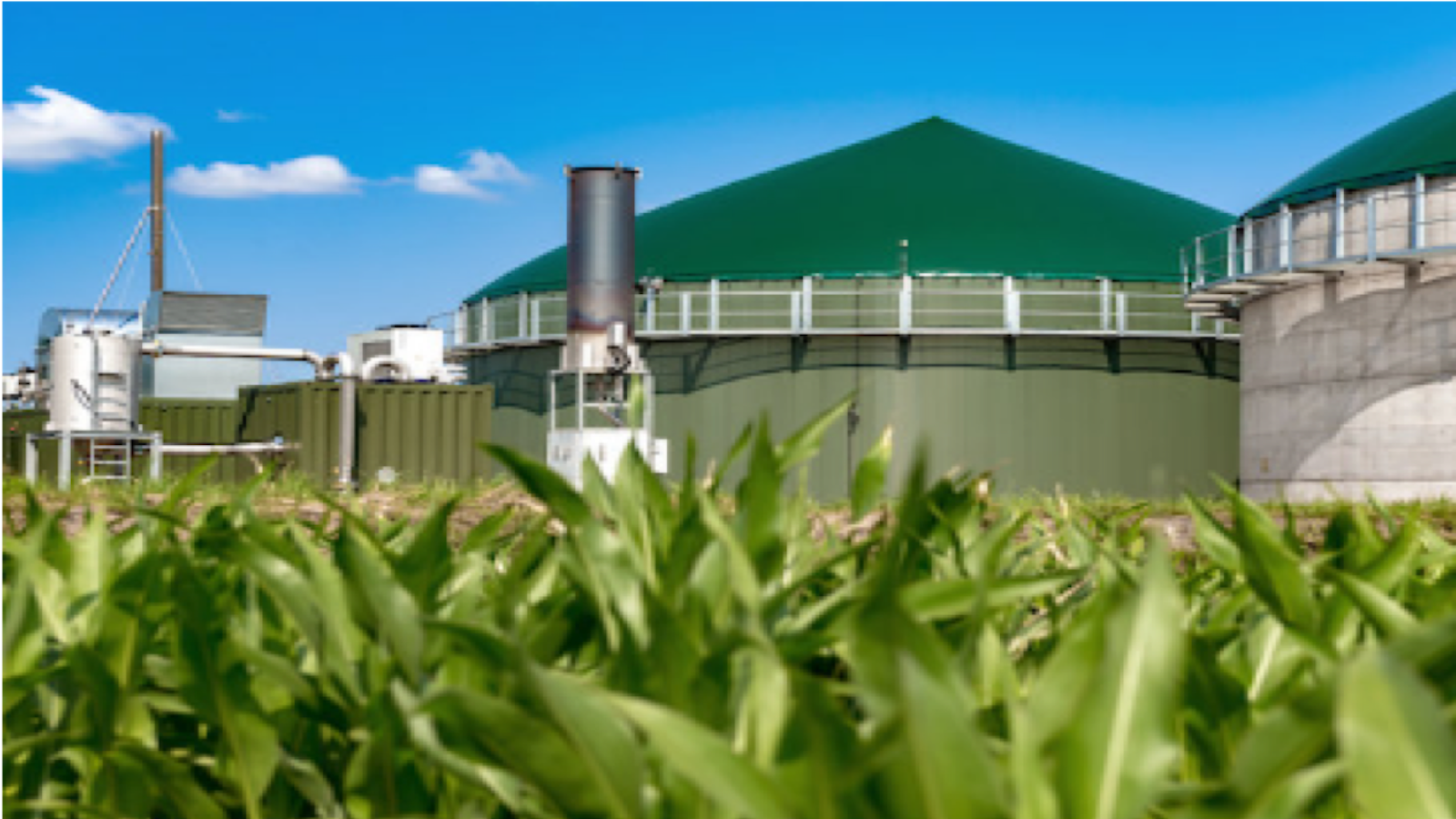

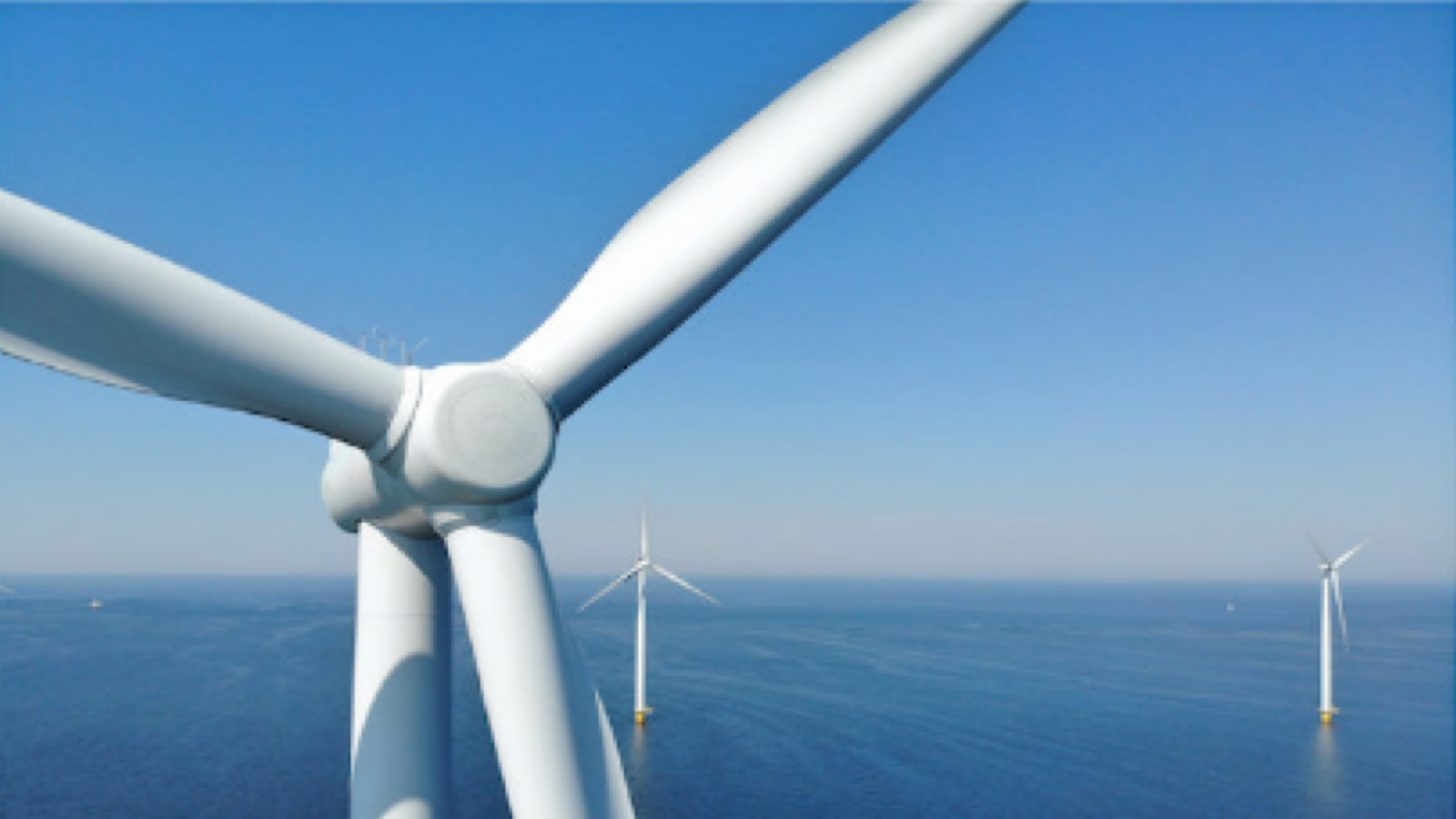

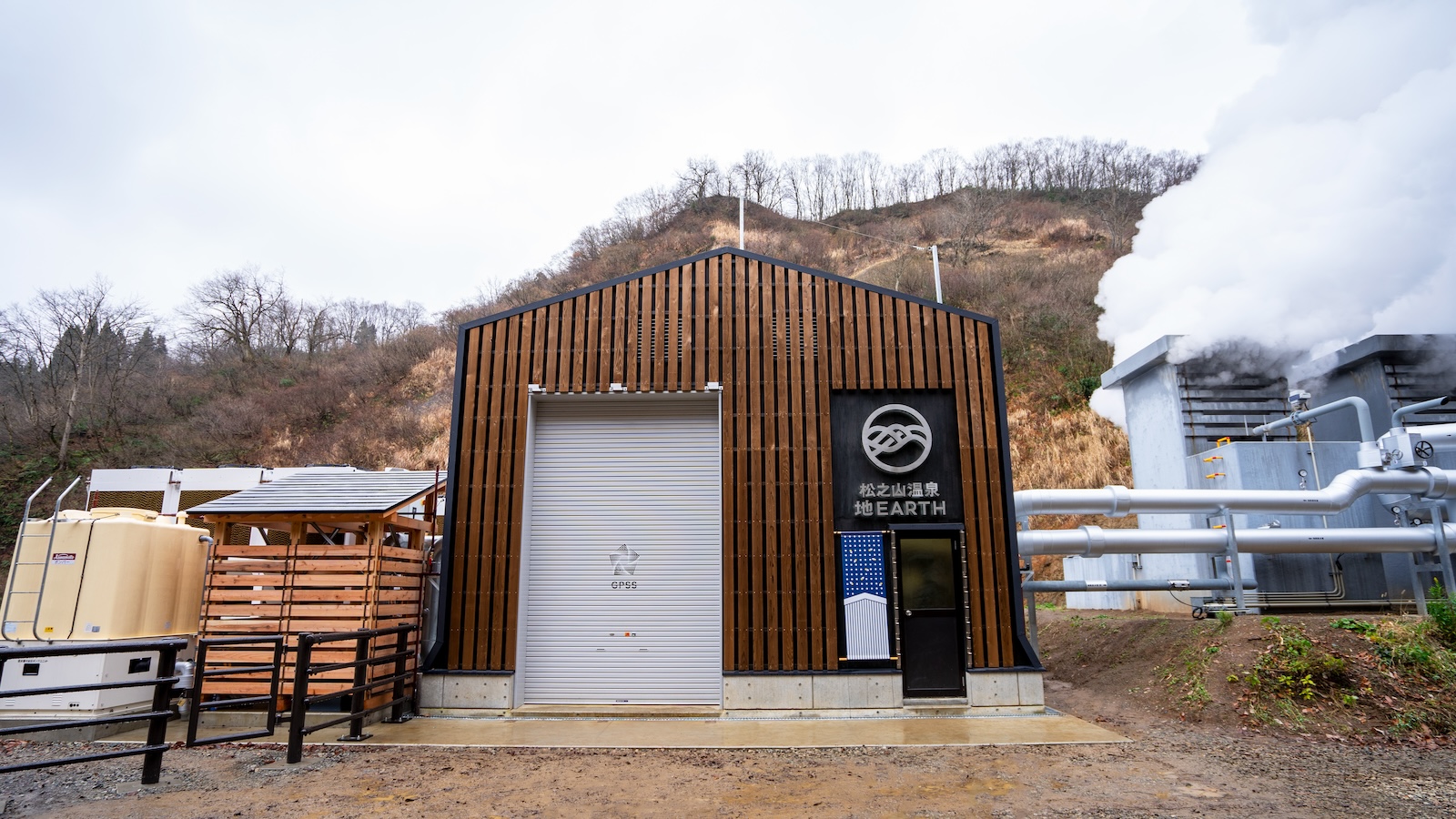
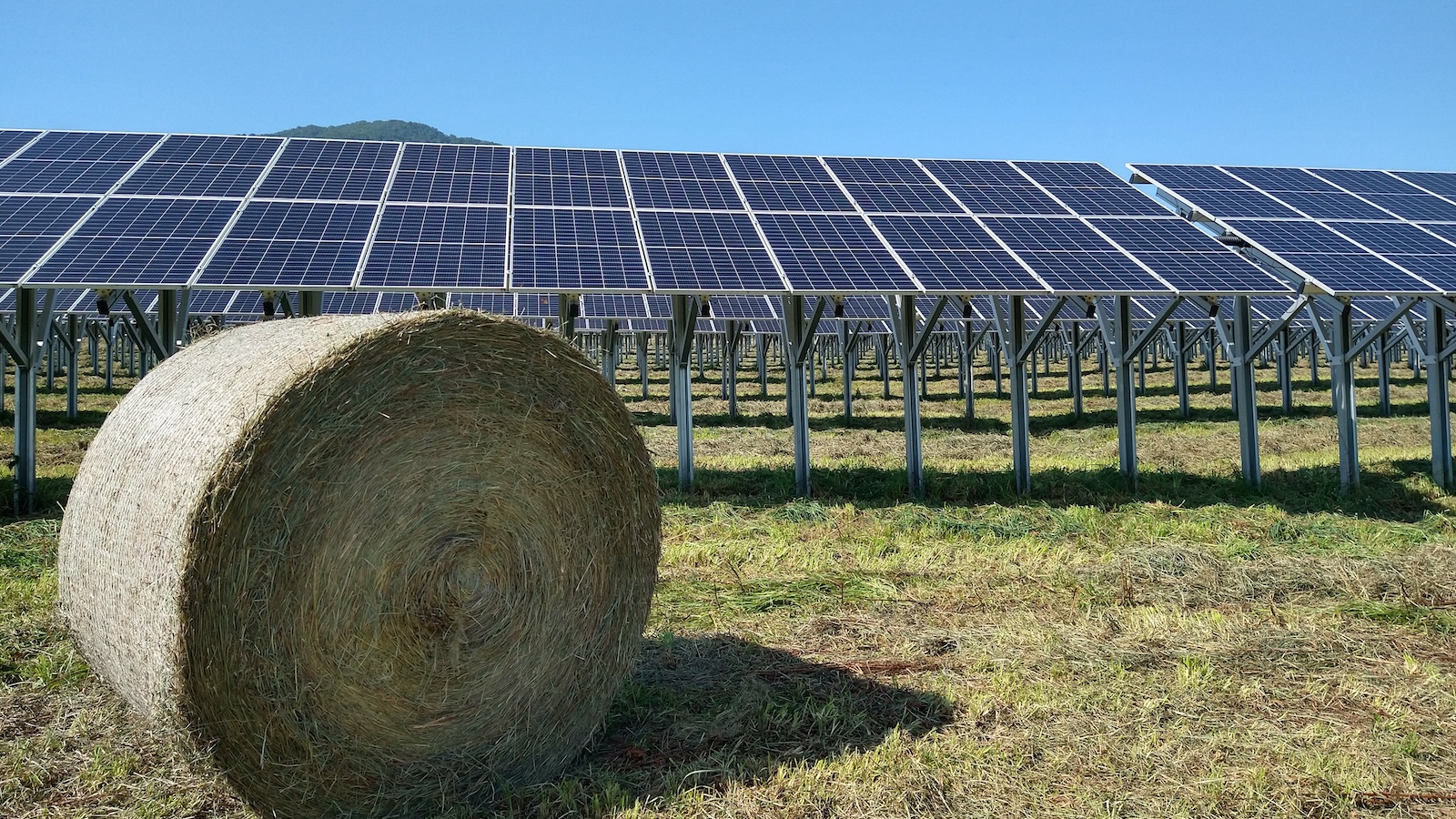

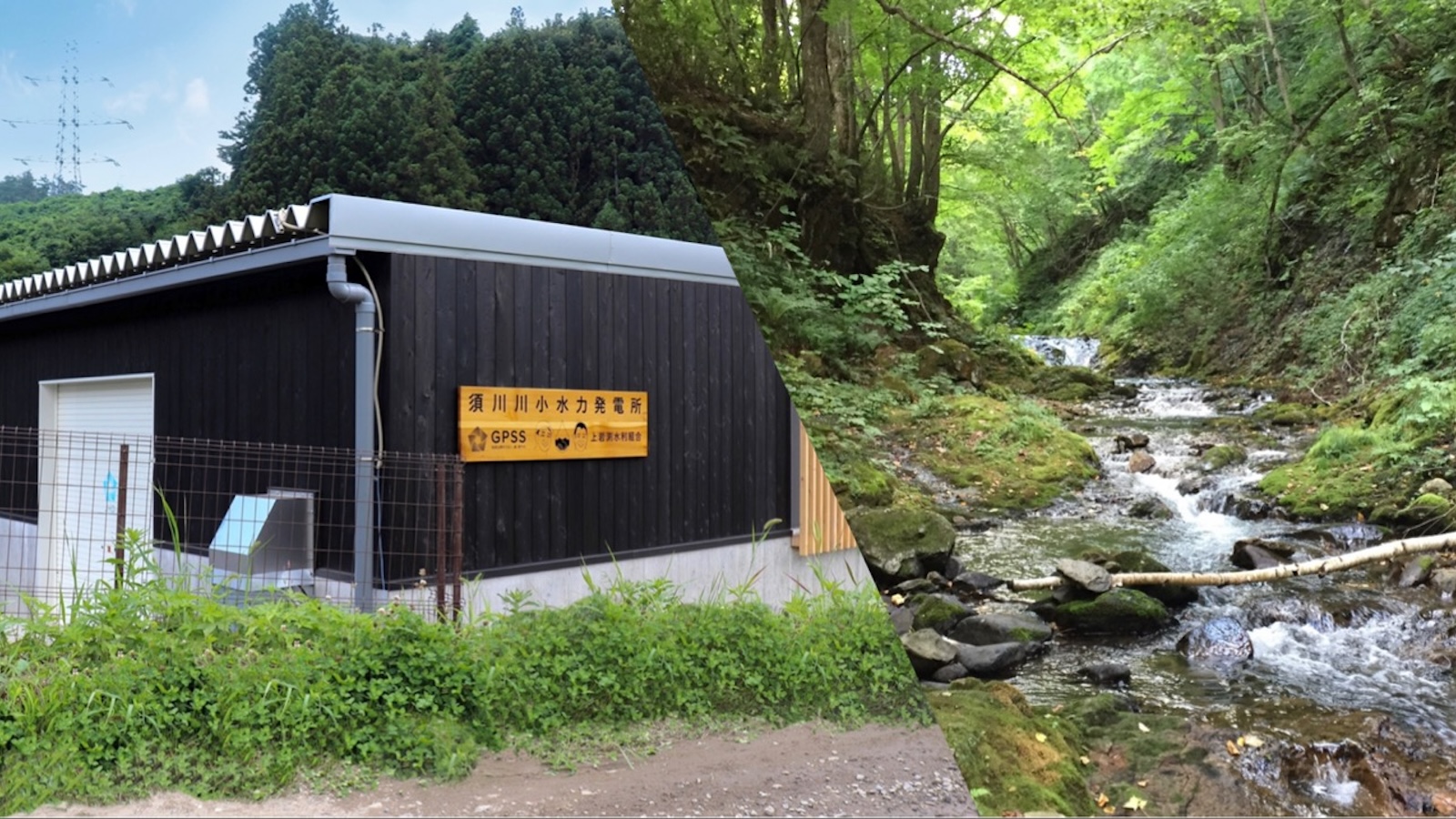

Group achievements
In operation (Represented by  )
)
Appx. 0.2GW
In construction/In development*
Appx. 2.8GW
*Including, on-going survey and / or regional involvement
As of December 2024

Global Impact
| FY2021 | FY2022 | FY2023 | Growth | |
|---|---|---|---|---|
| Annual Electricity Sales |
86,579,000kWh | 119,002,000kWh | 127,654,000kWh | 7.5% |
| Annual CO2 Emissions Avoided |
40,000t-CO2 | 54,000t-CO2 | 58,000t-CO2 | 8% |
-
212,000 t-CO2 *1
Cumulative CO2 Emissions Avoided
(from January 2014 to October 2023).
Equivalent to the CO2 emissions of driving around 1,142,857,143 km by car. -
457,953,000 kWh *1
Cumulative Electricity Sales
(from January 2014 to October 2023).
Equivalent to the annual electricity consumption of about 109,696 households.
*1: Based on the ownership percentage of each power plant.
*2: Calculated based on Electricity Sales (kWh) × national average CO2 emission factor (t-CO2/kWh) published by the Ministry of the Environment.


